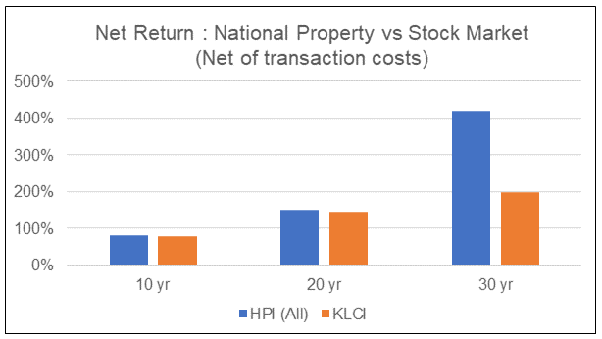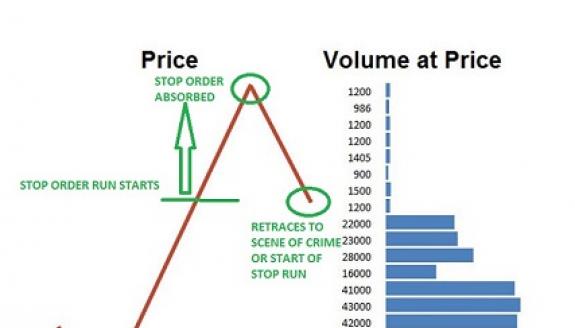
The bear market is threatening the S&P 500 stock exchange index. A bear market can be defined as a 20 percent decline in the stock index's high. Wall Street uses the term bear market to denote a market downturn. It allows investors to compare recent action to previous downdrafts. This article will explain how to invest in a bear-market. If you haven't yet made the switch to the stock market, here are some tips.
Dividend stocks
Dividend stock investors are safe havens during a downturn. Even in a down market, dividend-paying companies still do well. Despite the current situation, you might want to consider buying Dollar General stock in a bear market. The fast-food icon could be a stealth win among safe dividend shares. Here are some of the reasons. We'll look at each in turn.

Utilities
If you're planning to invest for retirement, utilities may be the best choice. Utilities still offer enormous income opportunities, even though there is high unemployment and shrinking paychecks. These companies provide us with electricity, water, gas and other essential services, making them ideal investments for retirement. These stocks are great retirement investments because of their steady cash flow and low risk. Utility stocks were able to protect many investors' wealth from the financial crisis that hit 2008, which caused economic chaos around the globe. Utility stocks can be paired with other conservative or defensive stocks because they are low-risk and have stable cash flows.
Bonds
While many investors believe that the recent fears of a bond bear market are overstated, the fact remains that the market is unlikely to experience a sustained crash anytime soon. The decline in bond prices is due in large part to the recent rise in interest rates. However, investors should remember that past rate hikes are no guarantee for future increases. Similarly, the past performance of stocks should not be used to predict the future performance of bonds.
Investing in a bear market
Bear markets can be challenging, but they can also present great opportunities for long-term investment. Bear markets are characterized by excessive market overreactions, often fueled by greed or fear. These feelings can lead irrational actions. You may also find it difficult to find great opportunities as confidence can desert the market. There are many strategies that will help you make smart investments during this period.

Buying during a bull market
The bull market in the stock markets is usually characterized as a bull market. However, this term also applies to all financial securities that are widely traded. In other words, a bull market is when prices and market value are expected to increase. Bull markets are often associated to a strong economy and high unemployment. However, the stock market is not always in a straight line. Sometimes it is better to wait than invest, especially if your goal is to become an investor.
FAQ
How can I invest in stock market?
Brokers can help you sell or buy securities. A broker buys or sells securities for you. When you trade securities, brokerage commissions are paid.
Banks typically charge higher fees for brokers. Banks will often offer higher rates, as they don’t make money selling securities.
To invest in stocks, an account must be opened at a bank/broker.
If you use a broker, he will tell you how much it costs to buy or sell securities. The size of each transaction will determine how much he charges.
Your broker should be able to answer these questions:
-
You must deposit a minimum amount to begin trading
-
whether there are additional charges if you close your position before expiration
-
What happens if your loss exceeds $5,000 in one day?
-
How many days can you keep positions open without having to pay taxes?
-
What you can borrow from your portfolio
-
Transfer funds between accounts
-
How long it takes to settle transactions
-
The best way to sell or buy securities
-
how to avoid fraud
-
How to get help for those who need it
-
Can you stop trading at any point?
-
whether you have to report trades to the government
-
Whether you are required to file reports with SEC
-
Do you have to keep records about your transactions?
-
Whether you are required by the SEC to register
-
What is registration?
-
How does it impact me?
-
Who should be registered?
-
What are the requirements to register?
What is a bond?
A bond agreement is a contract between two parties that allows money to be transferred for goods or services. It is also known simply as a contract.
A bond is usually written on a piece of paper and signed by both sides. This document includes details like the date, amount due, interest rate, and so on.
The bond can be used when there are risks, such if a company fails or someone violates a promise.
Bonds are often used together with other types of loans, such as mortgages. This means that the borrower has to pay the loan back plus any interest.
Bonds are also used to raise money for big projects like building roads, bridges, and hospitals.
A bond becomes due upon maturity. When a bond matures, the owner receives the principal amount and any interest.
Lenders lose their money if a bond is not paid back.
Can bonds be traded?
Yes they are. Bonds are traded on exchanges just as shares are. They have been for many, many years.
The only difference is that you can not buy a bond directly at an issuer. You will need to go through a broker to purchase them.
Because there are less intermediaries, buying bonds is easier. This means you need to find someone willing and able to buy your bonds.
There are several types of bonds. While some bonds pay interest at regular intervals, others do not.
Some pay quarterly, while others pay interest each year. These differences make it easy to compare bonds against each other.
Bonds are great for investing. You would get 0.75% interest annually if you invested PS10,000 in savings. You would earn 12.5% per annum if you put the same amount into a 10-year government bond.
If all of these investments were put into a portfolio, the total return would be greater if the bond investment was used.
How do I choose an investment company that is good?
It is important to find one that charges low fees, provides high-quality administration, and offers a diverse portfolio. Fees vary depending on what security you have in your account. While some companies do not charge any fees for cash holding, others charge a flat fee per annum regardless of how much you deposit. Others charge a percentage based on your total assets.
It's also worth checking out their performance record. You might not choose a company with a poor track-record. Avoid companies with low net assets value (NAV), or very volatile NAVs.
It is also important to examine their investment philosophy. Investment companies should be prepared to take on more risk in order to earn higher returns. They may not be able meet your expectations if they refuse to take risks.
What is the role and function of the Securities and Exchange Commission
Securities exchanges, broker-dealers and investment companies are all regulated by the SEC. It enforces federal securities regulations.
What is a REIT and what are its benefits?
An REIT (real estate investment trust) is an entity that has income-producing properties, such as apartments, shopping centers, office building, hotels, and industrial parks. They are publicly traded companies that pay dividends to shareholders instead of paying corporate taxes.
They are similar to a corporation, except that they only own property rather than manufacturing goods.
Is stock marketable security a possibility?
Stock is an investment vehicle that allows investors to purchase shares of company stock to make money. You do this through a brokerage company that purchases stocks and bonds.
Direct investments in stocks and mutual funds are also possible. There are actually more than 50,000 mutual funds available.
The difference between these two options is how you make your money. Direct investment is where you receive income from dividends, while stock trading allows you to trade stocks and bonds for profit.
Both cases mean that you are buying ownership of a company or business. You become a shareholder when you purchase a share of a company and you receive dividends based upon how much it earns.
Stock trading is a way to make money. You can either short-sell (borrow) stock shares and hope the price drops below what you paid, or you could hold the shares and hope the value rises.
There are three types for stock trades. They are called, put and exchange-traded. Call and Put options give you the ability to buy or trade a particular stock at a given price and within a defined time. ETFs, also known as mutual funds or exchange-traded funds, track a range of stocks instead of individual securities.
Stock trading is very popular because investors can participate in the growth of a business without having to manage daily operations.
Stock trading is not easy. It requires careful planning and research. But it can yield great returns. You will need to know the basics of accounting, finance, and economics if you want to follow this career path.
Statistics
- "If all of your money's in one stock, you could potentially lose 50% of it overnight," Moore says. (nerdwallet.com)
- Ratchet down that 10% if you don't yet have a healthy emergency fund and 10% to 15% of your income funneled into a retirement savings account. (nerdwallet.com)
- Our focus on Main Street investors reflects the fact that American households own $38 trillion worth of equities, more than 59 percent of the U.S. equity market either directly or indirectly through mutual funds, retirement accounts, and other investments. (sec.gov)
- The S&P 500 has grown about 10.5% per year since its establishment in the 1920s. (investopedia.com)
External Links
How To
How can I invest in bonds?
A bond is an investment fund that you need to purchase. They pay you back at regular intervals, despite the low interest rates. These interest rates can be repaid at regular intervals, which means you will make more money.
There are many ways you can invest in bonds.
-
Directly buying individual bonds.
-
Buying shares of a bond fund.
-
Investing via a broker/bank
-
Investing through a financial institution.
-
Investing through a Pension Plan
-
Directly invest with a stockbroker
-
Investing through a Mutual Fund
-
Investing via a unit trust
-
Investing through a life insurance policy.
-
Investing through a private equity fund.
-
Investing using an index-linked funds
-
Investing through a hedge fund.